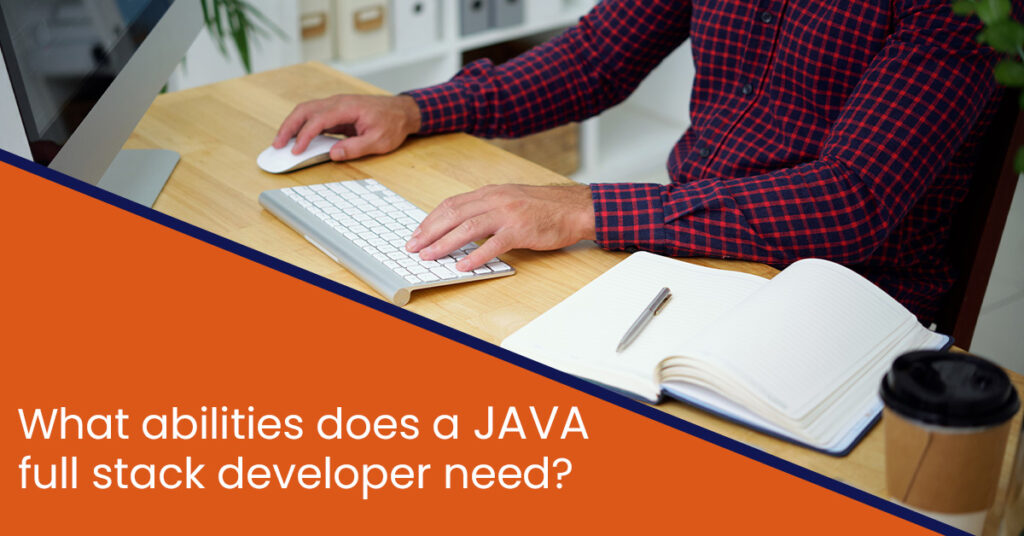
Java is a core coding language that developers use to create software for various platforms and web-based applications. Even though Java is a fundamental programming language, experts can acquire specialized knowledge to become skilled programmers. You could also need technical know-how and soft skills to perform at your best, in addition to coding talents. This essay will look at the top 15 abilities that make you a good Java developer.
What does a developer of Java do?
A programmer that integrates Java programming with websites, applications, and other commercial software is a Java developer. They collaborate with other programmers, software developers, and software engineers. Throughout the cycle of creating an application or software, a Java developer is also in charge of additional responsibilities, including designing and testing. They might:
- Design, implement, and maintain each aspect of the development of a Java application in collaboration with team members.
- take part in creating the software architecture and converting client requirements into rules or specifications
- conduct software analysis, testing, and bug-fixing
- comprehend all production- and roll-out-related concerns and dangers, manage application software
- devise modifications, and suggest them to stakeholders.
- After release, stay in touch with clients to assist with any unforeseen issues.
Top 15 skills for Java developers
Java developers need to have a wide range of relevant skill sets because they engage in various tasks outside of coding. Although learning basic Java is simple, individuals can progress in their careers by learning intermediate and advanced Java code. The following are some crucial abilities for Java developers:
1. Java-based systems
In 1995, Sun Microsystems released Java, and they regularly upgraded their platform. New rollouts now take place once every six months. Since it is difficult to be aware of every upgrade, Java developers are often advised to become familiar with Java systems starting with Java 8 iteration. Java developers benefit from familiarizing themselves with the latest modifications to keep informed.
2. Core Java skills
Java developers need a fundamental comprehension of fundamental ideas like:
OOP is also referred to as a programming paradigm that organizes software around data and objects rather than logic. Combining things using this fundamental Java skill improves a code’s security and stability.
Design patterns are programs that assist in solving code issues regularly. The three categories of design patterns need to be understood by Java developers.
Abstract classes:

OOP uses abstraction to make coding simpler. For complex code, programmers employ a Java interface.
Java has a serialization feature that allows one object to be represented as a series of bytes. The Java process carries out the serialization necessary to transfer things between Java virtual machines.
3. Java build tools
To automate source code applications, Java developers use Java build tools. They have access to various tools to finish their jobs quickly. Java build tools include Apache, Sonatype, Gradle, Bazel, Nexus, and Cmake, to name a few.
4. Java EE parts
Enterprise Edition of Java includes a large number of parts. A Java developer must have a solid understanding of how to create server-side applications using EE components. Java Server Pages, Servlets, and Java Beans are a few of the crucial elements.
5. Tools for testing Java
Java developers might participate in testing procedures in addition to writing code. Testing tools enable developers to deploy applications without a web browser and test their code through a different database. Java developers can quickly test several processes thanks to tools like TestNG and Selenium.
6. Big data
Developers use Java because it is one of the best languages for learning big data. Java is used to create Hadoop and HDFS. Many ETL systems, such as Apache Kafka and Apache Camel, which are helpful for data extraction and loading, have been built by developers using Java. Working with Big Data requires a solid understanding of Java.
7. Software containers
Developers use application containers as necessary software program components. Developers frequently use the application containers JBoss and Jetty. They cover many activities, such as user authentication and database logging.
8. STRONG values
These object-oriented programming tenets are meant to enhance quality and maintenance procedures. SOLID comprises:
- Single responsibility: To prevent associated issues within a program, developers create a class only accountable for one thing.
- Functions, classes, and modules are open-closed, meaning they can still be modified but not added to.
- Liskov substitution: This principle instructs programmers to swap relevant superclasses for subclasses.
- Interface segregation: To eliminate unnecessary interfaces in a program design, developers should construct interfaces unique to one client.
- Inversion of dependencies: Java programmers construct abstractions rather than concrete objects when creating dependent objects. According to another facet of this idea, high-level modules are independent of low-level modules.
9. Spring Framework
Spring framework features superior object injection capabilities and a streamlined process. It is preferred by many developers when creating Java apps. The Spring framework is available to developers at all stages of software development.
10. Kotlin and Android
The most common language used to create mobile applications in Java. Learning Kotlin, a modified version of Java currently regarded as the industry standard for creating mobile apps, is advantageous for developers. Because Kotlin and Java can work together, learning Kotlin can benefit developers.
11. DevOps software
Software developers use DevOps techniques like continuous integration and deployment when creating apps. Thus, Java developers gain by upgrading their knowledge and becoming familiar with DevOps tools. Some crucial DevOps tools are Jenkins, Kubernetes, Docker, Chef, and Maven.
12. Blockchain
Blockchain developers prefer to work with Java. This technology aids in developing more secure systems that can thwart intrusive attempts. All digital transactions on a computer network are recorded on a blockchain. Understanding blockchain enables developers to take advantage of the potential present in this industry.
13. Soft skills
Developers may concentrate on acquiring soft skills, which are essential to their work, and technical skills. They collaborate with a team from the concept development stage until the software is released. Professionals with soft skills can take on duties that may fall outside their defined responsibilities.
14. Managing time
Every stage of the application development cycle has a deadline and a well-defined period to which a Java developer must adhere. They estimate the time needed to complete each phase starting at the beginning of the development process. The client’s demands ensure they finish all necessary stages on time.
15. Capable of communicating
Java programmers and other team members speak frequently. Clients and other stakeholders are discussed. They create manuals and documentation at different project stages. As a result, practical verbal and written communication skills are essential for a Java developer. What abilities does a Java full stack developer need?
What abilities does a Java full stack developer need?

A full-stack developer works on an application’s client and server sides. As a result, they can carry out both front-end and back-end Java software development duties. Their skill set is broad due to the encompassing nature of their work. Full-stack engineers may know numerous programming languages, including Java, Ruby, Python, and.Net, and front-end technologies like HTML5 and CSS3.
Full-stack engineers are skilled at working with version control systems like Git and servers like Apache or Nginx. They might need to be familiar with UI/UX design principles, database and cache technology, and other related topics. Additionally, they might have knowledge of REST, SOAP, and the development of web services or APIs. They should be well-versed in algorithms, grammar, and data structures and may be needed to build unit tests.
How can I strengthen my Java abilities?
Since the parent firm updates Java frequently and consistently, engineers must increase their Java proficiency to stay current. Improve your Java skills by attending training sessions, getting certified in the newest Java components, and training on the most current systems. Other approaches to developing Java abilities include:
- Reading code frequently.
- Practicing data structures and algorithms.
- Using online training materials like videos.
What are some uses for Java?

You can create mobile applications and work with big data if you are a current Java developer with the technology. You might look at opportunities to work on cloud-based applications and create artificial intelligence if you have strong Java abilities. There are many open source projects and communities in which you can take part. You can strive to work on initiatives like space programs, vehicle breakthroughs, cutting-edge technologies, and applications created in Java.
What qualities distinguish a skilled Java developer?

A good Java developer is proficient in both code and the Java ecosystem. Some of the Java-related technologies are updated often. A competent Java developer must know the most recent Java advancements and revisions. A software development team would benefit greatly from having a Java developer who is a team player and issue solver.

